
Condition: Child and adolescent psychiatry/psychology

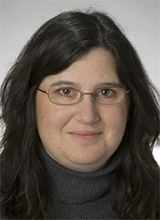
Felice Orlich

Heather Carmichael Olson
Personal Statement
I am a psychologist who carries out research, provides community education to a broad range of audiences, trains postgraduate students, works on public policy– and has served as a clinician with children and families for many years. My main interests are fetal alcohol spectrum disorders (FASD), early childhood mental health, and interventions for children born prenatally exposed to alcohol and other drugs and their families. My research is currently based at the Seattle Children’s Research Institute, but I also work in collaboration with UW researchers– and scientists at the University of Rochester in New York and multiple other academic institutions. A main research focus has been the Families Moving Forward (FMF) Program, a family-focused FASD intervention, now being disseminated primarily in the USA and Canada. The FMF Program is also now being translated into a mobile health application, called FMF Connect, for even broader use. Through Seattle Children’s, I co-direct a pilot service focused on assessment and short-term consultation for youth with prenatal substance exposure (including alcohol), and their families. I also offer mental health services to a broad range of young children and develops research focused on early childhood mental health. Over the years, beyond research and clinical work, I have been able to work toward change in national US public policy, collaborate with Indigenous communities and researchers in remote Northwestern Australia, and train dedicated young professionals in psychology and psychiatry. I am grateful for these remarkable career opportunities… and the chance to meet so many resilient and inspiring families. Note that you can only reach me through my Seattle Children’s email, at: heather.carmichaelolson@seattlechildrens.org
Christopher Varley
Personal Statement
My primary interest is Graduate Medical Education and Faculty Development in Child and Adolescent Psychiatry. I was the program director for the Child and Adolescent Psychiatry residency at the UWSOM for 32 years. I am now the Director of Education and Faculty Development in the Division of Child and Adolescent Psychiatry. My clinical interests are in pediatric psychopharmacology, particularly re ADHD.
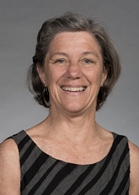
Ann Vander Stoep
Personal Statement
| As a child psychiatric epidemiologist, I conduct research about the etiology of child and adolescent mental health conditions and about the effectiveness of interventions that are designed to address these conditions. I co-direct the Developmental Pathways Research Program, the centerpiece of which is the Developmental Pathways Project, a longitudinal study of a cohort of 521 adolescents recruited as 11-12 year-olds from Seattle public middle schools. Members of the cohort are currently undergoing their eighth assessment that has followed their mental health and associated factors from early adolescence through young adulthood. DPP has contributed to our understanding of the development of co-morbid depression and conduct problems, as well as antecedents and consequences of problem substance use. I have collaborated with intervention researchers to develop and test school-based interventions to address mental health problems that interfere with academic performance and social well-being and to conduct randomized controlled trials of interventions that extend the reach of child mental health services to underserved communities. I teach public mental health research methods to graduate students at the University of Washington and to faculty and trainees with an research interest in mental health at the University of Nairobi in Kenya. I provide research mentorship to many UW masters and doctoral students in epidemiology and health services and to junior faculty in the Division of Child and Adolescent Psychiatry. |
Eileen Twohy
I am a clinical psychologist at Seattle Children’s Hospital and UW Medicine, where my work primarily consists of clinical care and teaching. My two areas of focus are the provision of effective, trauma-informed treatment for youth and families in suicidal crises and the promotion of equitable access to behavioral healthcare.
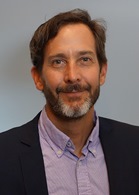
Eric J. Bruns
Personal Statement
I am a clinical psychologist and mental health services researcher. My overarching research aim is to produce and promote use of research, evaluation, and continuous quality improvement that aids high-quality implementation of effective models of care in real world service settings, such as in schools, public mental health systems, and family-and youth-run organizations. My research can be summarized as falling into three categories: (1) Care coordination models for youth with the most complex behavioral health needs; (2) school mental health; and (3) public sector implementation of research-based practices. In each area, I co-direct national training and TA centers. For example the National Wraparound Implementation Center (www.nwic.org), provides support to dozens of states and localities internationally on Wraparound. The National Wraparound Initiative (www.pdx.edu) serves to mobilize our research and policy activities. Our Wraparound fidelity tools and data systems can be found at www.wrapinfo.org. With respect to school mental health, our interdisciplinary UW School Mental Health Assessment, Research, and Training (SMART) Center — www.smartcenter.uw.edu — currently has over a dozen federal grants as well as state, local, and foundation funding focused on how best to ensure that evidence for effective mental health intervention and prevention is translated into effective programming in schools. The SMART Center also hosts the school mental health supplement of the UW Department of Psychiatry’s SAMHSA-funded Northwest Mental Health Training and Technical Assistance Center (MHTTC). Check out our extraordinary array of resources at https://mhttcnetwork.org/centers/northwest-mhttc/northwest-mhttc-school-mental-health.
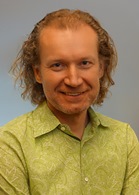
Zoran Brkanac
Personal Statement
My academic research background encompasses a variety of complex neurodevelopmental and neurodegenerative disorders. During postdoctoral training in San Antonio, I was examining phenotype/genotype correlations of Chromosome 18q- Syndrome. Chromosome 18q- Syndrome is a disorder in which variable size deletions are associated with a range of phenotypes including short stature; intellectual disability; poor muscle tone and developmental alterations of limbs and craniofacial region. Following clinical training in Psychiatry and Child and Adolescent Psychiatry, I continued with postdoctoral training in Seattle where I was researching Hereditary Ataxias and Dyslexia. During my time as a Principal Investigator, my lab focused on Autism and Alzheimer’s disorder. Our focus was on rare variants that play a role in familial as opposed to sporadic Autism and late-onset Alzheimer’s disease.
Currently, my focus is providing clinical care to individuals with Intellectual Disability and Autism Spectrum Disorder. In addition to working at Seattle Children’s Hospital Inpatient Psychiatry and Behavioral Medicine Unit, I provide diagnostic assessments and medication management at Seattle Children’s Autism Center and consult at Washington State Residential Habilitation Centers.
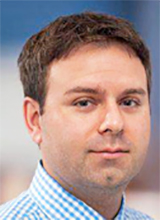
Jesse Bledsoe
Personal Statement
| I am interested in how cognitive development and brain development are affected in children experiencing cancer and comorbid psychological disorders. My research interests include using structural neuroimaging and neuropsychological assessment methods to evaluate brain-behavior relationships and development. My clinical interests overlap with my research interests. I am a clinical neuropsychologist with the Seattle Children’s Neuropsychological Service and conduct neurocognitive evaluations with various pediatric populations including children with brain tumors, leukemia, and genetic disorders. |

Shannon Simmons
Personal Statement
I am Medical Director of Inpatient and Acute Mental Health Services at Seattle Children’s Hospital, where I provide clinical leadership and clinical care to patients with a broad range of diagnoses and presenting concerns in the Psychiatry and Behavioral Medicine Unit, Partial Hospitalization Program, and Emergency Department Mental Health program. I aim to provide high quality, family-focused, evidence-based care as part of a multidisciplinary team. I am highly involved in educating residents, fellows, and medical students, and serve as Associate Training Director for Inpatient Psychiatry for the child psychiatry fellowship program.
